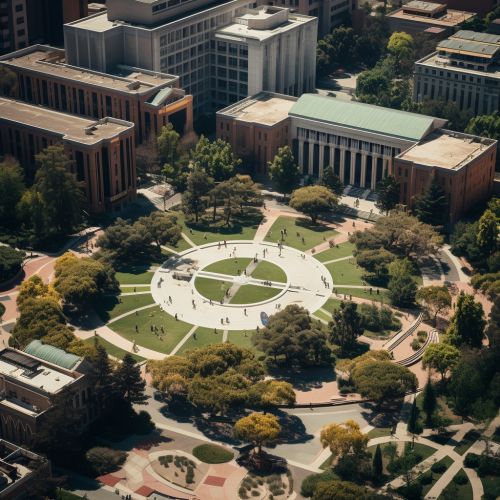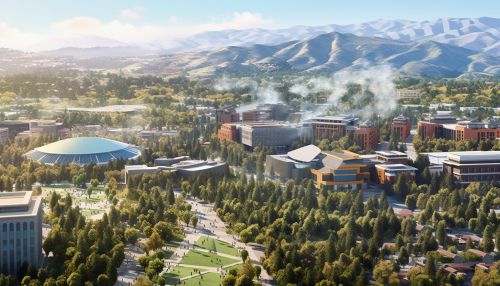Los Angeles School (sociology)
Overview
The Los Angeles School is a school of thought in the field of urban studies and urban planning that emerged in the 1980s. It is primarily associated with the University of California, Los Angeles (UCLA) and is characterized by a focus on the unique aspects of the city of Los Angeles as a model for understanding urban development and social issues. The school challenges traditional Chicago School theories of urban development and instead proposes a new model based on the specific characteristics of Los Angeles.


History
The Los Angeles School emerged in the 1980s as a response to the perceived limitations of the Chicago School's concentric zone model of urban development. Scholars associated with the Los Angeles School argued that this model, which was based on the specific characteristics of Chicago, was not universally applicable and did not accurately reflect the realities of urban development in other cities, particularly Los Angeles. Key figures in the development of the Los Angeles School include Edward Soja, Michael Dear, and Allen J. Scott.
Key Concepts
The Los Angeles School is characterized by several key concepts that distinguish it from other schools of thought in urban studies. These include:
Postmodern Urbanism
The Los Angeles School is closely associated with the concept of postmodern urbanism, which argues that traditional models of urban development are no longer applicable in the contemporary world. Postmodern urbanism emphasizes the importance of cultural and symbolic aspects of urban life, and argues that cities are increasingly characterized by fragmentation, decentralization, and heterogeneity.
Spatial Justice
Spatial justice is a key concept in the Los Angeles School, which argues that spatial arrangements and patterns of urban development have significant social and political implications. The concept of spatial justice emphasizes the importance of equitable access to resources and opportunities, and argues that spatial arrangements can either reinforce or challenge existing social inequalities.
The Los Angeles Model
The Los Angeles School proposes a new model of urban development based on the specific characteristics of Los Angeles. This model emphasizes the importance of the city's unique geography, history, and cultural diversity, and argues that these factors have shaped its distinctive patterns of urban development.
Criticisms
The Los Angeles School has been subject to several criticisms. Some scholars argue that the school's focus on Los Angeles as a model for understanding urban development is overly narrow and fails to account for the diversity of urban experiences. Others argue that the school's emphasis on spatial justice and postmodern urbanism overlooks the importance of economic and political factors in shaping urban development.
Influence
Despite these criticisms, the Los Angeles School has had a significant influence on the field of urban studies. Its concepts and theories have been widely adopted and adapted by scholars in a variety of disciplines, and its focus on the unique characteristics of Los Angeles has contributed to a broader recognition of the importance of place-specific studies in understanding urban development.
